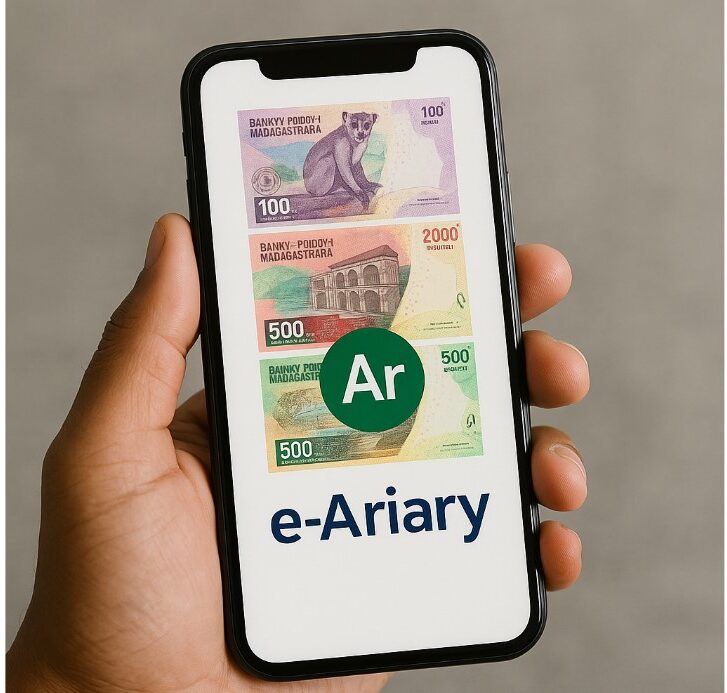Madagascar has started testing its official digital currency, the e-Ariary, in a nationwide pilot led by the Central Bank. The trial, launched in May 2025, aims to simplify daily transactions, reduce cash dependence, and enhance financial inclusion, particularly in rural areas where access to banking remains limited.
The Central Bank is collaborating with commercial banks, mobile operators, and public institutions to assess the system’s performance in real-world conditions.
How the e-Ariary works in everyday transactions
The e-Ariary is designed to complement existing mobile money platforms. Once fully deployed, it will enable people to pay for items such as groceries, utility bills, public transportation, and even salaries or government support directly from their phones or via QR codes, smart cards, and offline terminals. To access it, users will need to open a special account with the Central Bank.
The Central Bank Governor Aivo Andrianarivelo described the system as safe, accessible to all, and a potential tool against corruption. Because it creates a clear digital record of transactions, it could help improve transparency and prevent corruption in both public and private payments.
Cash management is also costly. According to Avio, managing cash is expensive and inefficient, especially since low-value notes, like the 100 Ariary, cost more to produce than their actual value and wear out quickly. The e-Ariary offers a cost-effective alternative that simplifies daily spending, promotes transparency, and reduces corruption risks through traceable transactions.
The e-Ariary, on the other hand, could eliminate these recurring expenses while making payments easier for the public.
Testing the system before nationwide rollout
The experimental phase will run for ten months and involve key stakeholders from the public and private sectors. This includes tax offices, microfinance groups, public utilities such as Jirama, and market vendors. Together, they’ll test how well the system handles different transaction types, its security, and how people respond to it.
Public awareness will play a major role. The Central Bank plans to run education campaigns to help people understand how the e-Ariary works and how to use it safely. The long-term goal is widespread adoption, particularly in areas where physical banks are difficult to access.
A bold step toward a cash light future for Madagascar
The e-Ariary builds on the country’s growing appetite for digital finance. In 2023, Madagascar recorded over 342 million mobile money transactions worth about $8.5 billion. Mobile wallets are far more common than traditional bank accounts, with over 10 million compared to 3 million, showing a strong foundation for digital payments to grow.
If the pilot succeeds, Madagascar could become a regional model for integrating central bank digital currency (CBDC) into everyday life.











